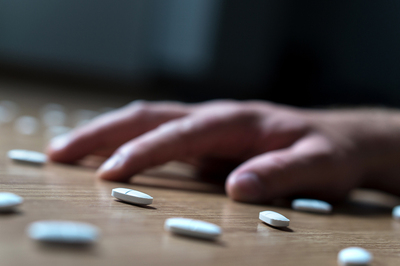Addicts may be among the most misunderstood people in the world due to the many misperceptions that exist about them, as well as about the people who love and care for them. Unfortunately, these misperceptions can interfere with the path to recovery, which is why this article sets the record straight with a roundup of five addiction myths and the truth about addiction.

Think she is a bad person for taking that drink? Bad has nothing to do with it.
Myth 1: Addicts are terrible people who deserve what they get
Adjectives like “brave,” “forthcoming,” and “helpful” are not words that typically come to mind when the word “addict” is mentioned. However, just because a person has an addiction does not mean that person is bad. Says the National Institute on Drug Abuse (NIDA): “Addiction is defined as a chronic, relapsing brain disease that is characterized by compulsive drug seeking and use, despite harmful consequences.” Judging someone because they have a chronic disease is not just misguided; it is also unfair. To that end, viewing addiction as something that requires punishment as opposed to treatment is also a broken way of thinking.
Indeed, addicts may do bad things because of changes in their brains caused by prolonged drug abuse. Blaming them or punishing them for these acts is no different than blaming or punishing a cancer victim for his or her symptoms. Accordingly, just as society prioritizes the treatment of more sympathetic diseases like cancer, so should society value treatment for addiction.
Myth 2: Shame effectively motivates addicts
Not only is the perception that addicts are bad people or bring addiction on themselves wrong, but incorporating this belief into treatment can actually lead to relapse. According to a study by the Association for Psychological Sciences: “Feeling shame about past instances of problem drinking may increase the likelihood of relapse and other health problems.” Conversely, reports Science Daily: “Feeling guilt about previous behavior, as opposed to shame about being a ‘bad’ person, may be an important component of recovery.”
Myth 3: Addicts choose to be addicts
No one sets out to become an addict. Due to a combination of genetics and environmental factors, some people are predisposed to addiction. This is why some people can use repeatedly and remain fine, while others use less frequently and quickly succumb to the power of addiction. While scientists once believed that addiction had everything to do with lack of willpower, it is now known that the opposite is true. Addiction is as physical as it is psychological. Because of this, its treatment is equally complex and multi-factored.
Just as addicts do not choose to become addicts, nor can they simply decide to stop one day. In fact, addicts who choose to detox without any additional treatment are likely to fail. Such a course can be life-threatening, depending on the substance to which one is addicted.
As Betty Tai, director of the Center for Clinical Trials Network for the National Institute on Drug Abuse, told Cincinnati.com: “[Addiction is] a brain disease, and you’ve got to treat it with a disease model. You give the patient what the patient is short on in his body or brain,” she said, “so that the patient can keep a normal life … a quality of life.”
Myth 4: Addicts have a single drug of choice
Psychology Today says: “At one time, we believed that most addicts had one drug of choice and stuck with it. Today, polysubstance abuse—the use of three or more classes of substances—is the norm, not the exception. Some people use multiple substances to create a more intense high (e.g., combining cocaine and heroin, or ‘speed-balling’) while others take certain drugs to counteract the undesirable effects of another drug (e.g., using alcohol to come down from stimulants). Some supplement their primary drug of choice with whatever is readily available (e.g., using prescription opiates and heroin interchangeably).”

Just because a doctor prescribed them does not mean they’re safer or better than illegal drugs.
Myth 5: Prescription drug addicts belong in a different category than illegal drug addicts
Many people mistakenly view the misuse of drugs like Vicodin, Xanax, and Adderall as more acceptable than illicit drugs because they are “legal” and can be prescribed by doctors. However, when these drugs are not used in the manner intended with the oversight of a physician, they affect the same area of the brain as their illegal counterparts and can lead to the same grave consequences. The takeaway? While the stigma associated with prescription drugs may be less, this way of thinking does not hold up in reality.
Because addiction is so complex and misunderstood, the road to recovery can be a challenging one for addicts as well as for the people who love them. Finding the right rehab program can make all the difference when it comes to facilitating recovery and promoting a better quality of life for all.
We’re Here to Help
For more information about Harris House’s leading drug rehab in St. Louis, contact us today.







